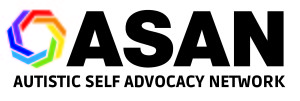Disasters, both natural and manmade, can strike anywhere at any time. Individuals with disabilities are disproportionately affected by disaster. Centers for Independent Living, Statewide Independent Living Councils, and Independent Living Associations are often uniquely qualified to provide an array of services to individuals with disabilities in preparation before, as well as during and after, disaster in their local area. While your area may not have been impacted by a disaster, climate change makes the possibility increasingly likely.
The National Council on Independent Living Emergency Planning and Response Subcommittee is composed of NCIL members who take a great interest in the issue of individuals with disabilities affected by disaster. Many of the members are actively involved in disaster planning and response within the disability community, and have provided disaster relief to individuals with disabilities for a number of years. Most of us became interested following a disaster that directly impacted our areas and consumers we served. We offer the following examples of how CILs, SILCs, and ILAs throughout the country have become involved with their local emergency management and affected systems change to ensure that individuals with disabilities are provided an equal level of service in disaster preparedness, response, and recovery.
Following these examples, is suggested language that could be included in State Plans for Independent Living to ensure that the state Independent Living programs can and will be allowed to provide emergency services, if necessary, in their local areas. We understand that many CILs, SILCs and ILAs may not have the capacity, funding, or staffing to provide direct disaster relief to their communities. However, with involvement in mitigation and preparedness activities, our community can perhaps be better prepared and less impacted. We believe that this involvement is easily considered under the core service of advocacy and the community service of systems advocacy. Assistance offered to individual consumers during and after a specific disaster can be easily included in and counted as one or more of the five core services of independent living. [Read more…]
 Tuesday, March 1st, the disability community will gather across the nation to remember disabled victims of filicide–disabled people murdered by their family members or caregivers.
Tuesday, March 1st, the disability community will gather across the nation to remember disabled victims of filicide–disabled people murdered by their family members or caregivers. This toolkit is intended to provide advocates and allies with concrete tools and resources to use in their own communities, including in response to local incidents. The toolkit includes information about how to understand and respond to filicide, frequently asked questions about filicide, and a guidebook for Day of Mourning vigil site coordinators.
This toolkit is intended to provide advocates and allies with concrete tools and resources to use in their own communities, including in response to local incidents. The toolkit includes information about how to understand and respond to filicide, frequently asked questions about filicide, and a guidebook for Day of Mourning vigil site coordinators. On June 4, 2015, Representative Murphy introduced H.R. 2646, the Helping Families in Mental Health Crisis Act. In August, a separate mental health bill (the Mental Health Reform Act – S. 1945) was introduced in the Senate. Provisions in the current House and Senate bills threaten the structure of the Substance Abuse and Mental Health Services Administration (SAMHSA), threaten privacy rights, weaken the ability of the Protection and Advocacy System (P&As) to do their vital work defending civil and human rights, and increase the use of forced treatment in the community through supporting assisted outpatient treatment (AOT), among other concerns. NCIL Mental Health Subcommittee Co-Chair Mike Bachhuber was quoted in a
On June 4, 2015, Representative Murphy introduced H.R. 2646, the Helping Families in Mental Health Crisis Act. In August, a separate mental health bill (the Mental Health Reform Act – S. 1945) was introduced in the Senate. Provisions in the current House and Senate bills threaten the structure of the Substance Abuse and Mental Health Services Administration (SAMHSA), threaten privacy rights, weaken the ability of the Protection and Advocacy System (P&As) to do their vital work defending civil and human rights, and increase the use of forced treatment in the community through supporting assisted outpatient treatment (AOT), among other concerns. NCIL Mental Health Subcommittee Co-Chair Mike Bachhuber was quoted in a 
